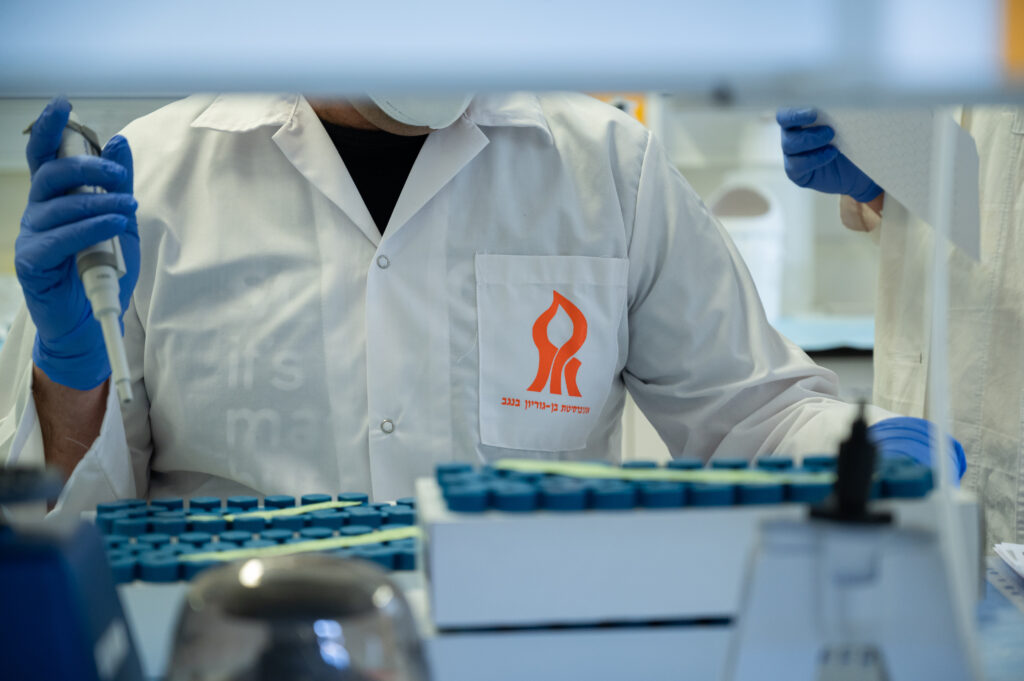The Director of Ben-Gurion University of the Negev’s Molecular Cognition Lab, Dr. Shira Knafo, believes that the way the two proteins interact erodes the passageways that produce memory.
“When there’s too much of the PTEN protein, it becomes toxic to the synapses. What we saw is that in Alzheimer’s disease, the (surplus) PTEN enters the synapses and causes them to be much weaker. When they become weak, they can’t pass information that well, and then you see loss of brain function and memory because the synapses are considered to be the place of information storage.”
The laboratory developed a peptide, which is one of the fundamental substances in the production of proteins, to prevent PTEN from degrading memory.
Read more on the Atlanta Jewish Times >>





